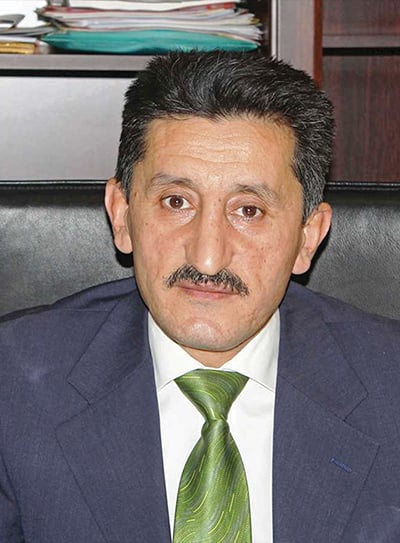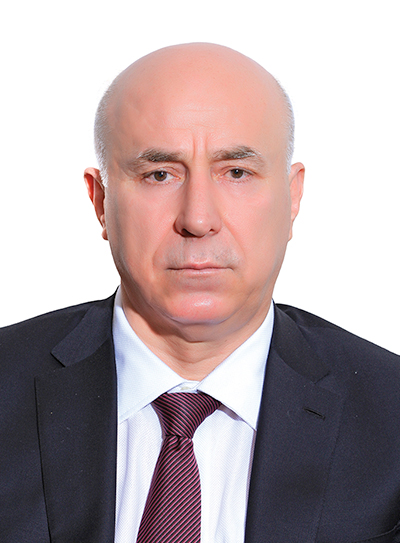A region focused on encouraging foreign investments
The Kurdistan Regional Governorate offers not only a wealth of promising investment opportunities but also one of the best investment laws in the Middle East
The Kurdistan Regional Governorate (KRG) experienced a decade of economic boom that came to an end in 2014 when the government’s priority turned from development to reestablishing regional stability. “Now things are moving forward again. We are very optimistic,” says Dr. Noori O. Abdulrahman, chairman of the Kurdistan Board of Investment (BOI), which oversees and promotes investment in KRG. That optimism is being supported by the international community — at conferences for the reconstruction of Iraq in Kuwait and London held in 2018, investments and donations of $35 billion were pledged, a proportion of which will go to the region. This is only the start, according to Abdulrahman: “We need to attract investors and partners from the US and worldwide to boost our economy. We also need their experience and know-how. The government is doing its best to facilitate the process for foreign companies coming to Kurdistan — for example, we have a very friendly investment law that is unique to KRG.” That investment law, created in 2006, is considered by many to be one of the best in the Middle East for foreign investors. Abdulrahman gives some of the reasons why: “Foreign investors are treated exactly the same way as national investors. They are entitled to 100% ownership of projects and land, can transfer profits abroad in full, and are exempt from all non-customs taxes and duties for 10 years, including those due on equipment and machinery.” BOI makes life easier for investors, and prides itself on ensuring investment procedures are simple and transparent. It acts as a liaison between the private sector and government, and assists foreign investors at all stages of a project’s life cycle. To provide easier access to the many opportunities in KRG, Abdulrahman says: “We are working on an investment road map in collaboration with a Lebanese tender specialist that is making announcements on behalf of BOI to attract international companies and to highlight the investment opportunities in the region. The road map will include short, medium and long-term projects, and investment opportunities in each sector. When investors arrive, everything will be ready for them — we will even allocate land for the development of projects. The opportunities available cover every sector, from manufacturing, financial and professional services, communications, infrastructure, housing, education and training, energy and healthcare to oil and gas. However, “Priority projects will include the building of new dams for generating electricity, funding for the industrial sector, tourism and, most especially, agriculture,” states Nawzad Hadi Mawlood, governor of Erbil Governorate.

Erbil: a hub for investors
Erbil, one of the regions’ three administrative provinces along with Sulaimani and Duhok, provides an excellent example of the potential for investment in KRG. Home to over two million people, Erbil is the capital of KRG at the heart of which lies the Citadel, a UNESCO World Heritage site and one of the world’s oldest metropolises. Having governed Erbil since 2004, Mawlood has overseen a modernization that makes it a hub for foreign investors: “Between 2004 and 2014, KRG invested €10 billion in Erbil in sectors such as oil and gas, infrastructure, health, education, tourism, electricity and more, while the private sector invested a further $24 billion. We now have an international airport, power plants and Iraq’s biggest oil refinery is here. We work hard to develop the private sector and have transformed Erbil into Iraq’s trade and administrative center.”
Erbil is also a magnet for Iraqis seeking medical treatment, as it hosts many private clinics and renowned doctors, and for tourists. “In 2014, we were named Arab Tourism Capital and we have a lot to offer visitors: history, shopping, 5-star hotels, restaurants, mountains and much more,” says Mawlood, adding: “We are currently promoting better links with private tourism companies.” In addition to tourism, Erbil is focusing on several other sectors for development and investment, including agriculture and industry. “We plan to build renewable energy infrastructure and start selling our energy to other countries. Plus, we are developing our public transport system and recently concluded an agreement in Germany for 400 buses,” he states. Mawlood believes Erbil will be the base for international companies helping to reconstruct Iraq: “All the logistics will be handled from here because Erbil is safe and the most developed part of Iraq. Investors can benefit greatly from coming here — there are opportunities for them in Erbil and KRG, and we will facilitate these opportunities for them.”

